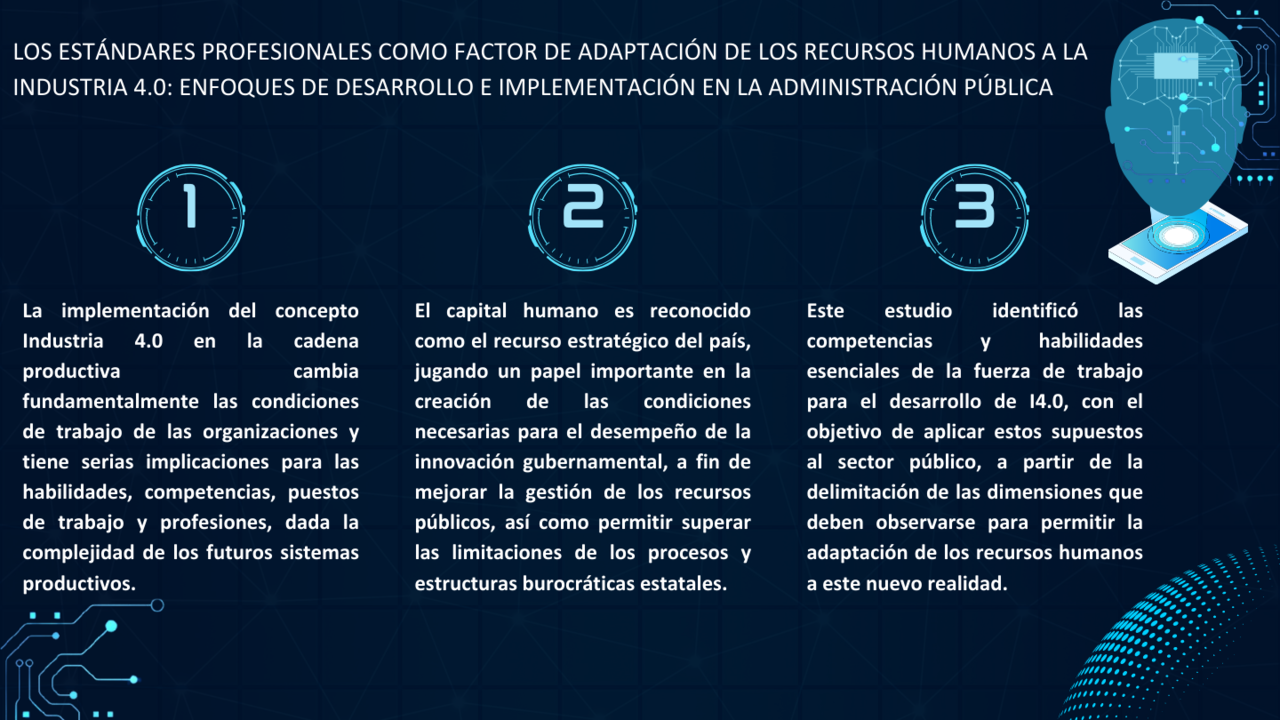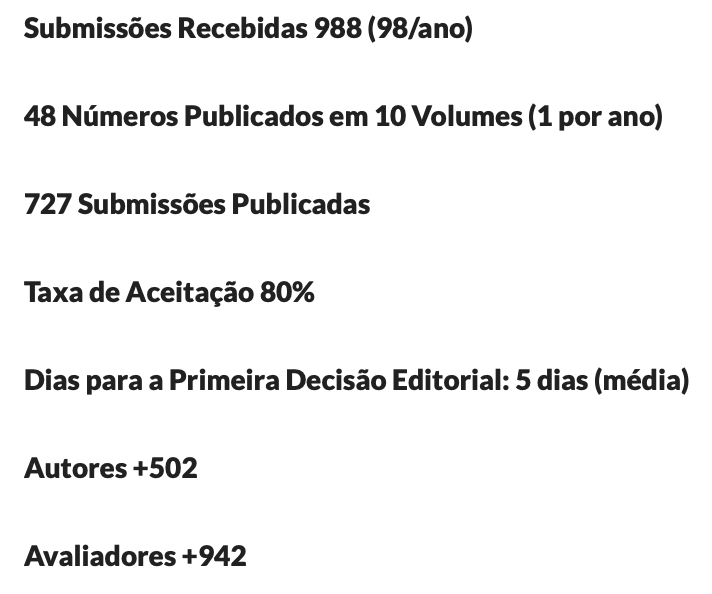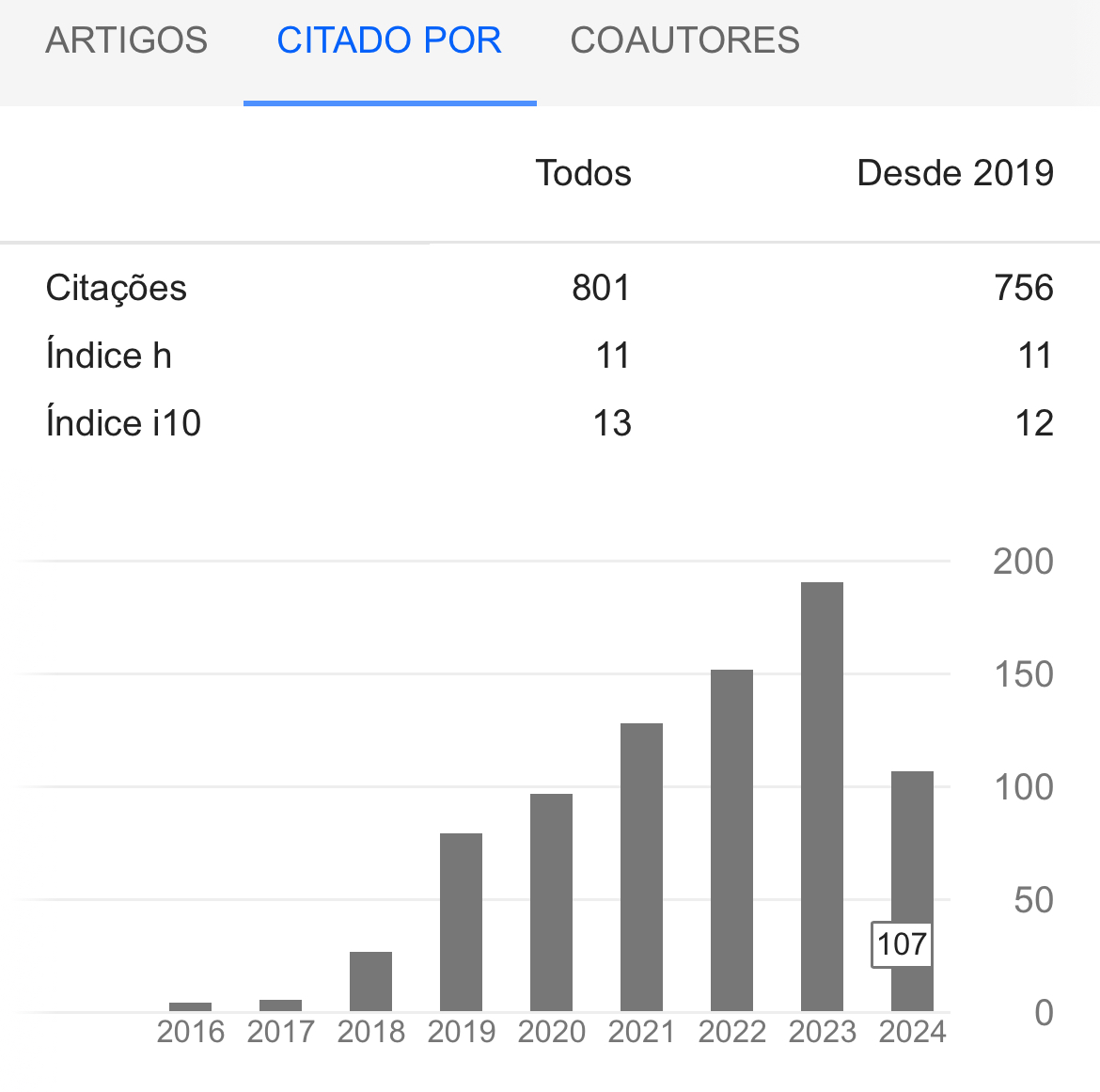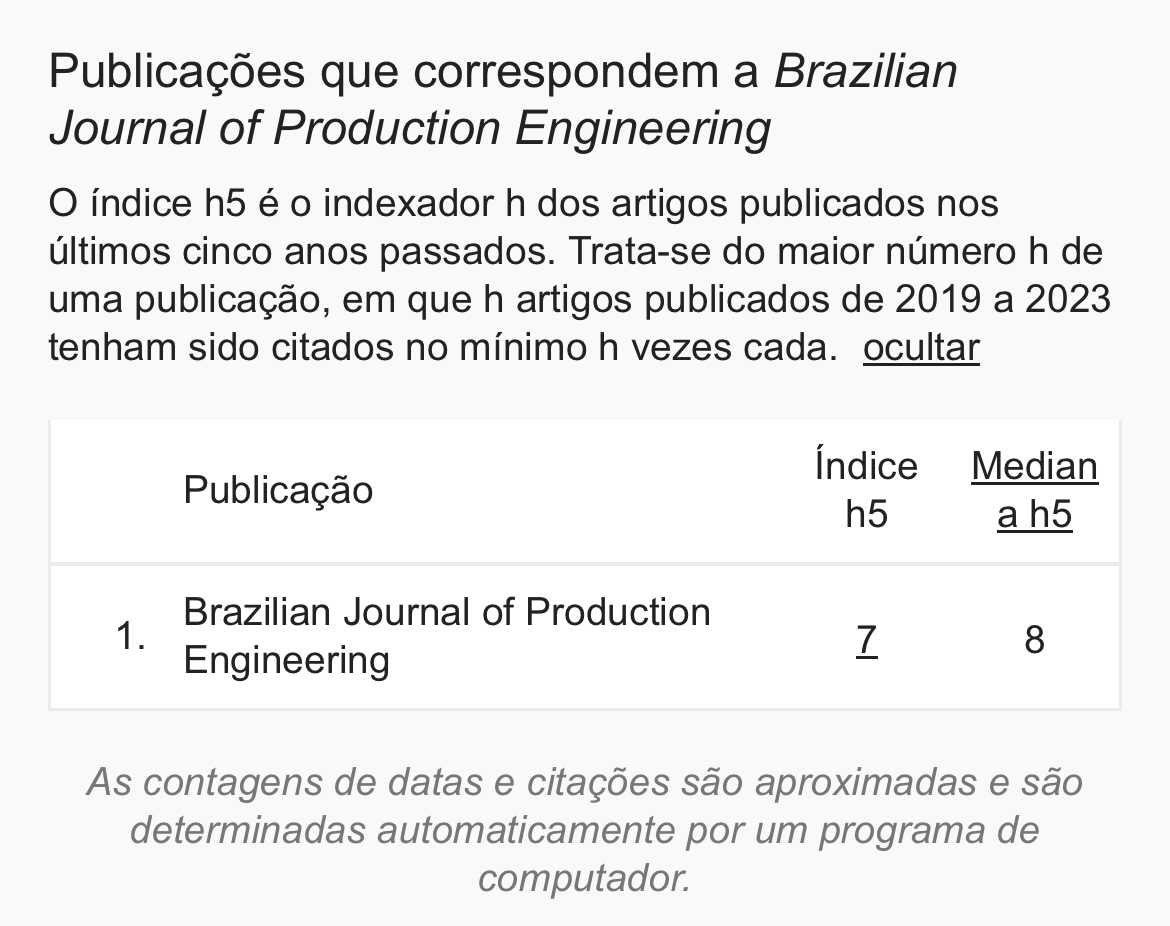Professional standards as a factor for adapting human resources to industry 4.0: approaches for development and implementation in public administration
DOI:
https://doi.org/10.47456/bjpe.v9i3.41035Keywords:
Industry 4.0, Skills, Human Resources, Public serviceAbstract
The progressive advances experienced in the production chain throughout history have placed us before the 4th Industrial Revolution, also known as Industry 4.0 (I4.0), marked by the extensive use of the Internet, robotics and digitization. There is a great perspective that governments promote I4.0 technologies in order to improve the management of public resources, as well as to allow overcoming the limitations of processes and state bureaucratic structures. However, the technological transformations introduced by this concept fundamentally change the working conditions of organizations and bring serious implications for jobs and professions. In this sense, the objective of the present study is to investigate the essential skills and abilities of the workforce for the implementation of I4.0 in the public sector. For this, a literature review was carried out in the Google Scholar (GA), Web of Science (WoS) and Scopus database. Content analysis showed that, in addition to the need for technical knowledge, it is imperative that workers have the ability to work under pressure, coordinate and solve complex problems, in addition to personal responsibility in decision-making. In the end, it was possible to derive a synthesized table, which identifies the dimensions that should be considered when evaluating professional standards for adaptation to I4.0.
Downloads
References
Aires, R. W. do A., Moreira, F. K., Freire, P. de S. (2017). Indústria 4.0: Competências requeridas aos profissionais da quarta revolução industrial. Foz do Iguaçu/PR. [Anais do Congresso Internacioanal de Conhecimento e Inovação-ciki]. Foz do Iguaçu/PR: ciki, 1-15. Recuperado de https://proceeding.ciki.ufsc.br/index.php/ciki/article/view/314%0A.
Al Amiri, N. & Abu Shawali, A. (2021). Talent management strategies of a public uae hospital in the industry 4.0 Era: A qualitative analysis. [S. l.]: LLC CPC Business Perspectives. DOI: https://doi.org/10.21511/ppm.19(2).2021.02
Antosz, K. (2018). Maintenance–identification and analysis of the competency gap. Eksploatacja Niezawodność, Rzeszów, Poland, 20(3), 35-959. DOI: https://doi.org/10.17531/ein.2018.3.19
Arun, K., Krishnakumar, U., & Das, D. (2020). Convergence of csr and industry 4.0. recent trends in indian public sector enterprises. Detroit, Michigan. Proceedings of the International Conference on Industrial Engineering and Operations Management. Detroit, Michigan: [s. n.]. 3955-3961.
Atzori, L., Iera, A., & Morabito, G. (2010). The Internet of Things: A survey. Computer Networks, [s. l.], 54(15), 2787-2805. DOI: https://doi.org/10.1016/j.comnet.2010.05.010
Avitia-carlos, P. et al. (2019). Conditions for the Development of Industry 4.0 from the Human Capital Technological Competences Perspective. Revista de Ciencias Tecnológicas, [s. l.], 2(4), 159-165. DOI: https://doi.org/10.37636/recit.v24159165
Benešová, A. & Tupa, J. (2017). Requirements for Education and Qualification of People in Industry 4.0. Procedia Manufacturing, [s. l.], 11. 2195-2202. DOI: https://doi.org/10.1016/j.promfg.2017.07.366
Chulanova, Z. K. (2019). Professional standards as a factor of adaptation of human resources to the Industry 4.0: approaches to development and implementation. Journal of Human Resource Management, Slovakia, 22(1), 12-20. Recuperado de www.jhrm.eu
Coelho, P. M. N. (2016). Rumo à Indústria 4.0 Towards Industry 4.0. 65 f. Universidade de Coimbra, Coimbra. Recuperado de http://hdl.handle.net/10316/36992
Confederação Nacional da Indústria. (2017). Relações trabalhistas no contexto da indústria 4.0. Brasília: CNI. Recuperado de http://conexaotrabalho.portaldaindustria.com.br/media/publication/files/Relacoes_trabalhistas_web.pdf
Dombrowski, U. Richter, T., & Krenkel, P. (2017). Interdependencies of Industrie 4.0 & Lean Production Systems: A Use Cases Analysis. Procedia Manufacturing, [s. l.], 11, 1061-1068. DOI: https://doi.org/10.1016/j.promfg.2017.07.217
Ejsmont, K. (2021). The impact of industry 4.0 on employees—insights from Australia. Sustainability, [s. l.], 13(6), 3095. DOI: https://doi.org/10.3390/su13063095
Erol, S. et al. (2016). Tangible Industry 4.0: A Scenario-Based Approach to Learning for the Future of Production. Procedia CIRP, [s. l.], 54, 13-18. DOI: https://doi.org/10.1016/j.procir.2016.03.162
Fitsilis, P., Tsoutsa, P., & Gerogiannis, V. (2018). Industry 4.0: Required personnel competences. International Scientific Journal “Industry 4.0”, [s. l.], 3(3), 130-133.
Fredriksson, C., et al. (2017). Big Data in the Public Sector: A Systematic Literature Review. Scandinavian Journal of Public Administration, 21(3), 39-62. Recuperado de http://ovidsp.ovid.com/ovidweb.cgi?T=JS&PAGE=reference&D=emed14&NEWS=N&AN=365050985 DOI: https://doi.org/10.58235/sjpa.v21i3.11563
Ghobakhloo, M. (2018). The future of manufacturing industry: a strategic roadmap toward Industry 4.0. Journal of Manufacturing Technology Management, 29(6), 910-936. DOI: https://doi.org/10.1108/JMTM-02-2018-0057
Grzelczak, A., Kosacka, M., & Werner-lewandowska, K. (2017). Employees competences for industry 4.0 in Poland–preliminary research results. 24th International Conference on Production Research, ICPR 2017, Poznan, Poland, 139-144. DOI: https://doi.org/10.12783/dtetr/icpr2017/17598
Haleem, A. & Javaid, M. (2019). Additive Manufacturing Applications in Industry 4.0: A Review. Journal of Industrial Integration and Management, 4(4), 1930001. DOI: https://doi.org/10.1142/S2424862219300011
Hartmann, E. A. & Bovenschulte, M. (2013). Skills Needs Analysis for “Industry 4.0” based on Roadmaps for Smart Systems. Using Technology Foresights for Identifying Future Skills Needs. Global Workshop Proceedings, Moscow, 24-36. Recuperado de http://www.bmbf.de/pubRD/Umsetzungsempfehlungen_Industrie4_0.pdf
Hecklau, F., et al. (2016). Holistic Approach for Human Resource Management in Industry 4.0. Procedia CIRP, [s. l.], 54, 1-6. DOI: https://doi.org/10.1016/j.procir.2016.05.102
Hermann, M., Pentek, T., & Otto, B. (2016). Design principles for industrie 4.0 scenarios. 49th Hawaii international conference on system sciences (HICSS), [s. l.], 3928-3937. Recuperado de www.snom.mb.tu-dortmund.de DOI: https://doi.org/10.1109/HICSS.2016.488
Imran, F. & Kantola, J. (2019). Review of industry 4.0 in the light of sociotechnical system theory and competence-based view: A future research agenda for the evolute approach. Advances in Intelligent Systems and Computing. [S. l.]: Springer Verlag. 118-128. DOI: https://doi.org/10.1007/978-3-319-94709-9_12
Jerman, A., Bach, M. P., & Bertoncelj, A. (2018). A bibliometric and topic analysis on future competences at smart factories. Machines, 6(3), 41. DOI: https://doi.org/10.3390/machines6030041
Kagermann, H., Wahlster, W., & Helbig, J. (2013). Securing the future of German manufacturing industry recommendations for implementing the strategic initiative industrie 4.0. Germany: Federal Ministry of edu-cation and research, Final report of the Industrial 4.0 working group. Frankfurt.
Kagermann, H., Wahlster, W., & Helbig, J. (2013). Recommendations for implementing the strategic initiative industrie 4.0: Securing the future of German manufacturing industry. Final report of the Industrie 4.0 Working Group. Berlim, Germany: Forschungsunion. DOI: https://doi.org/10.3390/sci4030026
Karre, H., et al. (2017). Transition towards an Industry 4.0 State of the LeanLab at Graz University of Technology. Procedia Manufacturing, 9, 206-213. DOI: https://doi.org/10.1016/j.promfg.2017.04.006
Knies, E., et al. (2015). Special issue of international journal of human resource management, strategic human resource management and public sector performance. The International Journal of Human Resource Management, [s. l.], 26(3), 421-424. DOI: https://doi.org/10.1080/09585192.2014.980127
Kusmin, K. L., Tammets, K., & Ley, T. (2018). University-industry Interoperability Framework for Developing the Future Competences of Industry 4.0. Interaction Design and Architecture(s), 38, 28-45. DOI: https://doi.org/10.55612/s-5002-038-002
Li, C. H. & Lau, H. K. (2019). A critical review of maturity models in information technology and human landscapes on industry 4.0. IEEE International Conference on Industrial Technology (ICIT). [S. l.]: IEEE. 1575–1579. DOI: https://doi.org/10.1109/ICIT.2019.8755158
Liao, Y., et al. (2018). The impact of the fourth industrial revolution: A cross-country/region comparison. Production, [s. l.], 28. DOI: https://doi.org/10.1590/0103-6513.20180061
Long, C. K., et al. (2021). A big data framework for E-Government in Industry 4.0. [S. l.]: Walter de Gruyter GmbH. DOI: https://doi.org/10.1515/comp-2020-0191
Malhotra, C., Anand, R., & Soni, V. (2020). Creating Public Services 4.0: Sustainable Digital Architecture for Public Services in India. Indian Journal of Public Administration, [s. l.], 66(3), 327-342. DOI: https://doi.org/10.1177/0019556120957421
Mohelska, H. & Sokolova, M. (2018). Management approaches for industry 4.0 – The organizational culture perspective. Technological and Economic Development of Economy, [s. l.], 24(6), 2225-2240. DOI: https://doi.org/10.3846/tede.2018.6397
Müller, J. M., Buliga, O., & Voigt, K. I. (2018). Fortune favors the prepared: How SMEs approach business model innovations in Industry 4.0. Technological Forecasting and Social Change, [s. l.], 132, 2-17. DOI: https://doi.org/10.1016/j.techfore.2017.12.019
OECD (2018), Digital Government Review of Brazil: Towards the Digital Transformation of the Public Sector. OECD Digital Government Studies, OECD Publishing, Paris, Recuperado de https://doi.org/10.1787/9789264307636-en
Oesterreich, T. D. & Teuteberg, F. (2016). Understanding the implications of digitisation and automation in the context of Industry 4.0: A triangulation approach and elements of a research agenda for the construction industry. [S. l.]: Elsevier B.V. DOI: https://doi.org/10.1016/j.compind.2016.09.006
Pwc. (2016). Indústria 4.0: Construir a empresa digital. Portugal: PricewaterhouseCoopers. Recuperado de www.pwc.pt/industria40
Romero, D., et al. (2016). The operator 4.0: Human cyber-physical systems & adaptive automation towards human-automation symbiosis work systems. IFIP Advances in Information and Communication Technology, Springer, Cham, 488, 677-686. DOI: https://doi.org/10.1007/978-3-319-51133-7_80
Rother, E. T. (2007). Revisão sistemática X revisão narrativa. Rev. Acta Paulista de Enfermagem. 20(2), v-vi. DOI: https://doi.org/10.1590/S0103-21002007000200001
Rübel, S., et al. (2018). A maturity model for business model management in industry 4.0. Lüneburg, Germany: Leuphana Universität Lüneburg, Institut für Wirtschaftsinformatik.
Rüssmann, M., et al. (2015). Industry 4.0: The Future of Productivity and Growth in Manufacturing Industries. Boston consulting group, [s. l.], 9(1), 54-89.
Sacomano, J. B., et al. (2018). Indústria 4.0: conceitos e fundamentos. São Paulo: Blücher.
Sakurai, R. & Zuchi, J. D. (2018). As revoluções industriais até a indústria 4.0. Revista Interface Tecnológica, [s. l.], 15(2), 480-491. DOI: https://doi.org/10.31510/infa.v15i2.386
Santos, K., et al. (2017). Opportunities Assessment of Product Development Process in Industry 4.0. Procedia Manufacturing, [s. l.], 11, 1358-1365. DOI: https://doi.org/10.1016/j.promfg.2017.07.265
Schwab, K. (2019). A Quarta Revolução Industrial. [S. l.]: Edipro.
Shevyakova, A., et al. (2021). Competence development for Industry 4.0: Qualification requirements and solutions. Insights into Regional Development, [s. l.], 3(1), 124-135. DOI: https://doi.org/10.9770/IRD.2021.3.1(7)
Stern, S., et al. (2018) Public Services Government 4.0–the public sector in the digital age, Leading in a disruptive World. [S. l.]: McKinsey & Company Visual.
Tortorella, G. L. & Fettermann, D. (2018). Implementation of industry 4.0 and lean production in brazilian manufacturing companies. International Journal of Production Research, 56(8), 2975-2987. DOI: https://doi.org/10.1080/00207543.2017.1391420
Van Laar, E., et al. (2020). Determinants of 21st-Century Skills and 21st-Century Digital Skills for Workers: A Systematic Literature Review. [S. l.]: SAGE Publications Inc. DOI: https://doi.org/10.1177/2158244019900176
World Economic Forum. (2016). The future of jobs: Employment, skills and workforce strategy for the fourth industrial revolution.Global Challenge Insight Report. Geneva, Switzerland: WEF. Recuperado de http://www3.weforum.org/docs/WEF_Future_of_Jobs.pdf

Downloads
Published
How to Cite
Issue
Section
License
Copyright (c) 2023 Brazilian Journal of Production Engineering

This work is licensed under a Creative Commons Attribution-NonCommercial-ShareAlike 4.0 International License.











































































